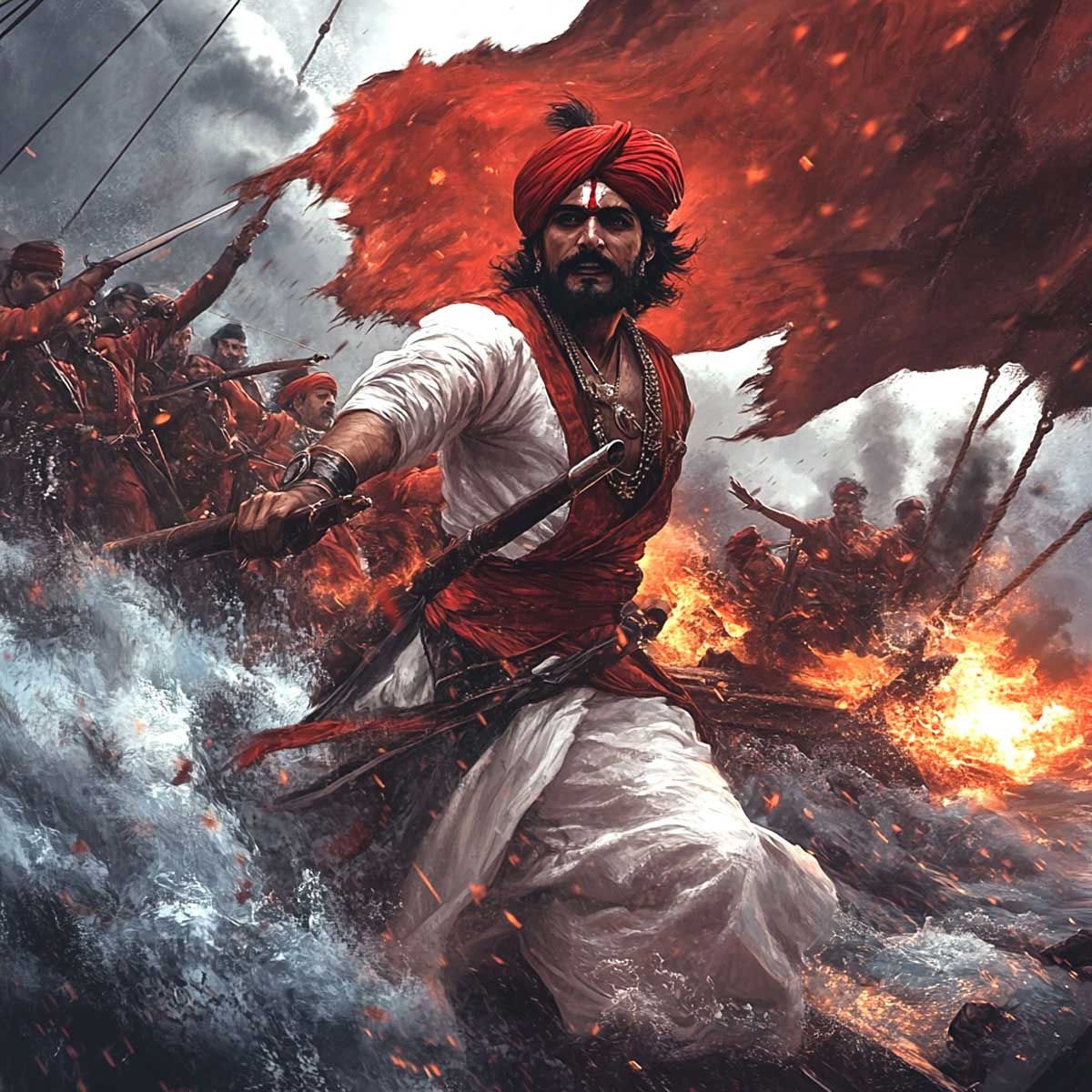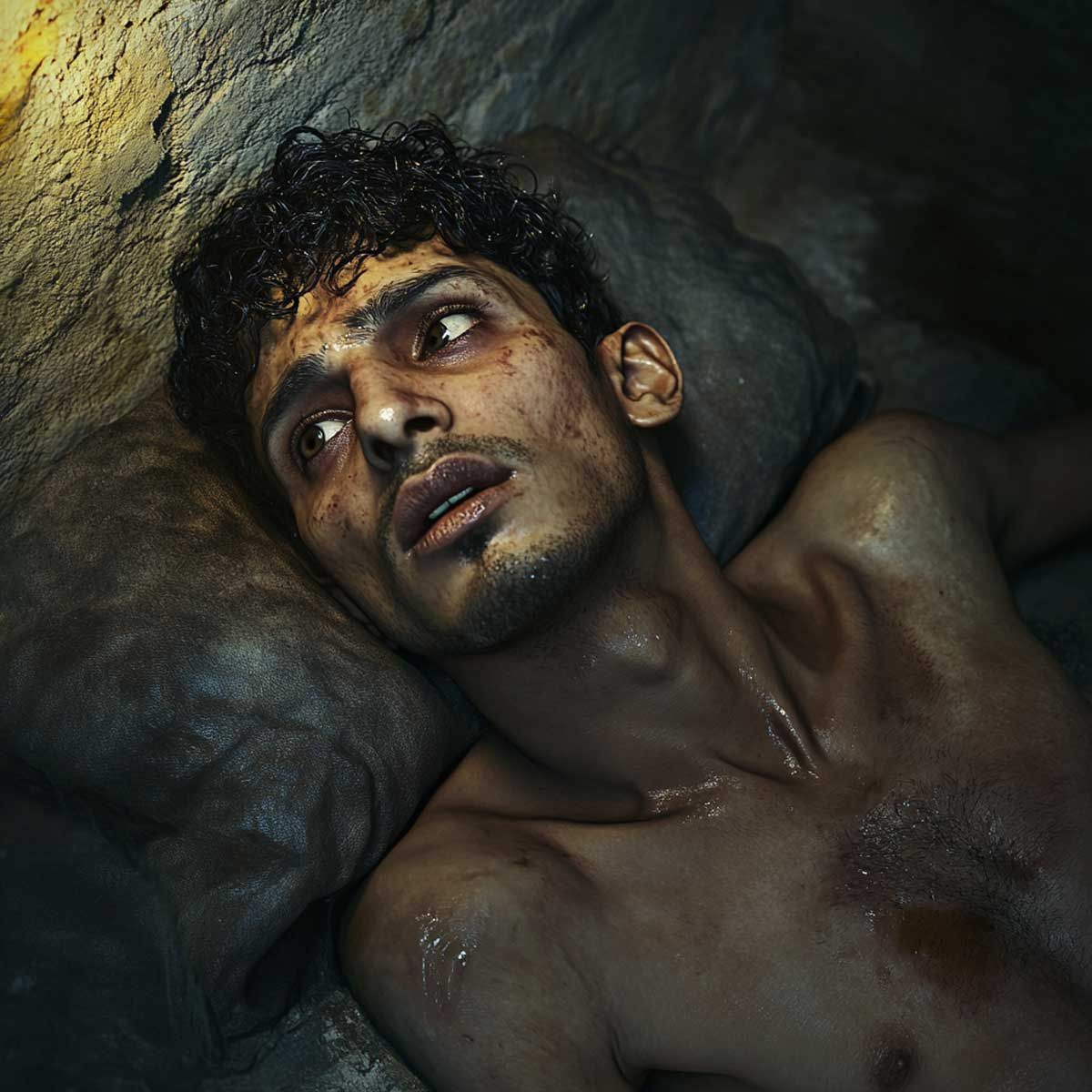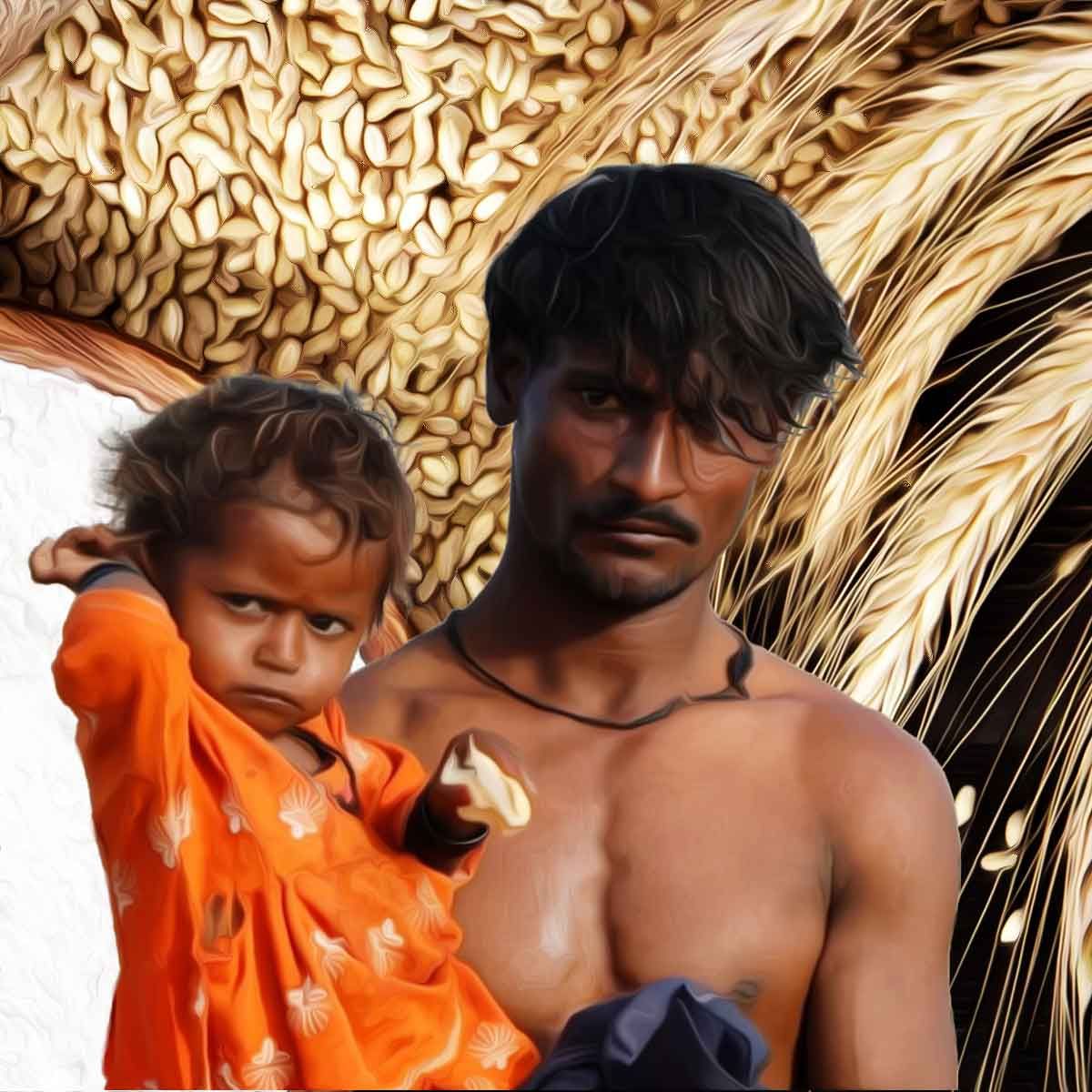MORE COVERAGE
Twitter Coverage
Satyaagrah
Written on
Satyaagrah
Written on
Satyaagrah
Written on
Satyaagrah
Written on
Satyaagrah
Written on
JOIN SATYAAGRAH SOCIAL MEDIA
"Mecca's Resolve: Preserving Purity" - Saudi Arabia escalates its crackdown in Mecca and Medina, escorting Muslims to off-site locations; they're interrogated for activism about Palestine and Gaza, starkly portraying the cost of activism in sacred spaces

In a recent development highlighting the complex interplay of politics and religion in the Middle East, Saudi Arabia has reportedly intensified its crackdown on Muslims expressing political activism, particularly those showing solidarity for Gaza and Palestine, at the sacred Islamic sites of Mecca and Medina.
|
According to a report by The Middle East Eye, the Kingdom has detained several individuals for their actions deemed as political statements in these holy places. Among those detained is Islah Abdur-Rahman, a British actor and presenter. His case has drawn significant attention due to his profile and the nature of his visit to Mecca. Abdur-Rahman traveled to Mecca with his family in late October and donned a Palestinian keffiyeh (a square scarf symbolically associated with Palestinian nationalism) at the site. This act, intended as a political statement, led to his detention by Saudi soldiers.
|
The incident involving Abdur-Rahman underscores the sensitive nature of political expressions in religious sites within Saudi Arabia, especially amid the heightened tensions of the Israel-Hamas conflict. The actions taken by Saudi authorities reflect the government's stance on maintaining a certain decorum in religious places, which are often expected to be free of political demonstrations.
This situation raises questions about the balance between freedom of expression and the sanctity of religious sites, particularly in regions where religion and politics are deeply intertwined. As more individuals find themselves caught at the intersection of religious devotion and political expression, the responses of authorities like those in Saudi Arabia are likely to be scrutinized for their implications on both religious freedoms and political rights.
In an incident that has garnered international attention, British actor and presenter Islah Abdur-Rahman shared his experience of being detained by Saudi soldiers in Mecca. Speaking about the ordeal, he stated, “I was stopped by four soldiers for wearing a white keffiyeh around my head and a Palestinian-coloured tasbih (rosary beads) around my wrist. I was escorted to an off-site location where they detained people for possible crimes or offences.”
|
Abdur-Rahman's encounter highlights the sensitivity surrounding symbols of political activism in religious areas, particularly within the context of the Israel-Palestine conflict. His description of the detention and interrogation process paints a vivid picture of the scrutiny he faced. “Once I was detained, there were other soldiers who interrogated me and asked me about my nationality, why I’m here, where I travelled from, how long I’m here for…It was evident that the scarf was the issue. They were talking in Arabic but they kept saying ‘Palestinian keffiyeh’ and looking at the scarf,” he recounted.
The focus of the interrogation on the keffiyeh underscores the symbolic power such items hold in the region, where religious and political identities often intersect. Abdur-Rahman's account reveals that his expression of solidarity with Palestine, through the act of wearing a keffiyeh, was perceived as a provocative political statement in the context of Mecca, a site of immense religious significance.
Furthermore, according to Abdur-Rahman, one of the Saudi soldiers reproached him for stirring up the issue of ‘Israel-Palestine’ in a sacred place like Mecca by wearing the keffiyeh. This interaction points to the complex dynamics at play in the Kingdom, where religious sanctity is zealously guarded, sometimes at the expense of individual expressions of political or cultural identity.
The resolution of the situation, with Abdur-Rahman being released after surrendering his fingerprints and the contentious scarf, marks the end of his personal ordeal but opens up broader discussions about the limits of personal expression in religious sites and the intersection of politics and faith in such sensitive contexts. This incident serves as a stark reminder of the delicate balance between religious reverence and individual rights in areas of deep cultural and political significance.
Islah Abdur-Rahman Laments Saudi Arabia’s Crackdown on Pro-Palestinians
In a recent interview with The Middle East Eye, British actor and presenter Islah Abdur-Rahman, who was detained in Mecca for wearing Palestinian symbols, shared his emotional turmoil following the incident. He articulated his initial fear and subsequent heartbreak, reflecting on the broader implications of his experience. "At first, I was really scared, because I was in a country that’s not mine, I have no rights and they could do anything to me and I would not have a say, so I was afraid…Then, my fear turned into heartbreak… the heartbreak got worse when I realised that this is just an ounce of what Palestinians must go through," he conveyed to The Middle East Eye.
Abdur-Rahman's comments highlight the vulnerability and helplessness he felt in a foreign country, compounded by his lack of rights and the potential consequences of his actions. His shift from fear to heartbreak demonstrates a deeper realization and empathy for the plight of the Palestinian people.
Further elaborating on his experience, Abdur-Rahman drew parallels between his brief detention and the ongoing struggles faced by Palestinians. "It made me realise how Palestinians in Gaza and in their country must feel being treated by the Israeli government, and the abuse they get just for being Palestinian. If anything it broadened my empathy even further than it already is," he claimed, showcasing his deepened understanding and compassion towards the Palestinian cause.
Following his release, Abdur-Rahman reportedly had a prolonged emotional outpouring on Instagram, a platform where he could freely express his thoughts and feelings to a broader audience. This public display of emotion on social media underscores the impact the incident had on him and serves as a poignant reminder of the human side of political and religious conflicts.
In the wake of his detention in Mecca, British actor Islah Abdur-Rahman reflected on the broader implications of his actions and the responses he received. Despite warnings from Saudi Arabians online about the prohibition of political symbolism at the Kingdom's holy sites, Abdur-Rahman defended his decision. “There is a universal Muslim understanding that this is not a random country and that Al-Aqsa in Palestine is one of the holiest sites in Islam…so I thought it would be OK,” he alleged, indicating his belief that expressing solidarity for Palestine would be acceptable in the context of shared religious significance.
This statement by Abdur-Rahman points to a common religious connection he felt justified his actions. His reference to Al-Aqsa in Palestine as one of Islam's holiest sites underscores the deeply intertwined nature of religion and politics in the context of the Israel-Palestine conflict, particularly within the Muslim world.
The Middle East Eye also reported a similar incident involving an Algerian man detained in Medina for pro-Palestinian activism. On 10th November of the same year, this individual was reportedly held for 6 hours for his actions. “In Medina, I did my prayers and I took the opportunity to supplicate for the children and victims in Palestine…Is it a crime to pray for the oppressed? I did not know that this was forbidden in the holy sites,” he claimed, expressing his surprise and questioning the restrictions on religious expressions of solidarity.
These incidents highlight a contentious issue within Saudi Arabia – the extent to which expressions of political or religious solidarity, particularly those pertaining to the Israel-Palestine conflict, are permissible in places of immense religious significance like Mecca and Medina.
|
The situation surrounding the Algerian man's detention in Medina for pro-Palestinian activism sheds light on the complexities of religious expression and political activism in Saudi Arabia. The man, recounting his experience, stated, “I had not even finished my prayers before soldiers came and took my phone and they made me delete a video where I was praying for people in Gaza.”
This statement paints a picture of the immediate and strict response by Saudi authorities to any form of political expression within their holy sites. The act of being forced to delete a video of a prayer indicates the extent to which authorities go to maintain what they perceive as the sanctity and neutrality of these religious spaces.
The man's experience escalated as he described being moved between police stations and treated in a manner he equated with criminal behavior. “I was treated like a criminal and told that I was detained for ‘sympathising and praying for Palestine’ and my fingerprints were taken,” he informed, highlighting the severity of the response to his actions.
His health conditions, high blood pressure and diabetes, coupled with the six-hour detention, add another layer of gravity to his ordeal. The fact that he was detained and questioned for an extended period over a religious and political expression of solidarity shows the delicate and often tense balance between freedom of expression and religious protocols in Saudi Arabia.
The case of the Indonesian woman, who was reportedly detained for wearing a Palestinian flag on her hijab, further illustrates the wider implications of such incidents. These instances reflect a pattern of strict control over political symbols and expressions within the holy sites of Mecca and Medina.
|
In another case, this week, a Turkish sheikh, Mustafa Evi was reportedly arrested in Makkah, by the Haramanin police over his calls for Gaza and Palestine, while he was performing Umrah.
“They arrested me now in Mecca because of my mention of the words Gaza and Palestine,” said the sheikh Mustafa in a video.
Saudi Arabia Turns Down Resolution to Impose Restrictions on Israel
In a significant geopolitical move, Saudi Arabia rejected a proposal aimed at isolating Israel economically and militarily. This decision was made during an emergency Arab-Islamic summit held in Riyadh on 11th November, amidst the backdrop of the Israel-Hamas conflict.
According to Channel 12's report, the summit, which saw participation from several Islamic nations, was convened to address the ongoing war between Israel and Hamas. The countries in attendance proposed a set of five measures targeting Israel, reflecting the heightened tensions and differing perspectives within the region on the conflict.
The proposed measures included significant steps such as preventing the transfer of military equipment to Israel from US bases in the Middle East and suspending all economic and diplomatic ties with the Jewish State. Additionally, the nations considered reducing oil sales to the US in response to its support for Israel and stopping Israeli air traffic over Gulf skies.
|
Saudi Arabia's decision to turn down these measures marks a notable stance in the region's complex political landscape. This move indicates a deviation from the more traditional positions held by some Islamic countries regarding Israel and reflects the evolving dynamics of Middle Eastern geopolitics.
The refusal to endorse these measures could be seen as a part of a broader strategy by Saudi Arabia, possibly indicating an interest in maintaining a certain level of stability or pursuing a different diplomatic approach in the region. As tensions continue in the Israel-Hamas conflict, the reactions and decisions of key regional players like Saudi Arabia are likely to have significant implications for the future of Middle Eastern diplomacy and international relations.
The resolution proposed during the Arab-Islamic summit hosted by Saudi Arabia on 11th October included a significant diplomatic initiative. It called for the formation of a joint delegation to visit Russia, the US, and Europe with the goal of ensuring a ceasefire in the Israel-Hamas war. However, this part of the resolution, along with other measures aimed at isolating Israel, was blocked by Saudi Arabia, alongside other key Arab nations like Jordan, Egypt, Mauritania, Djibouti, Sudan, Morocco, Bahrain, and the United Arab Emirates (UAE).
This collective decision to block the resolution is indicative of a more measured approach by these nations, possibly reflecting a desire to maintain regional stability or explore different avenues for resolving the conflict. The choice to engage in diplomatic efforts with major global powers like Russia, the US, and European countries highlights an understanding of the complex international dynamics at play in the Israel-Hamas conflict.
Additionally, the Organisation of Islamic Cooperation (OIC) nations also rejected Iran’s demand to designate the Israel Defense Forces (IDF) as a 'terror organization.' This decision further underscores the nuanced positions of these nations in the context of the conflict and their reluctance to adopt the more extreme measures proposed by Iran.
The summit was convened amid the ongoing conflict, which, as reported, escalated following a terror attack by Hamas on Israel, resulting in significant casualties. The summit’s agenda, calling for an end to the hostilities, reflects the urgency and complexity of the situation in the region. However, the varied responses and decisions of the participating nations, particularly in rejecting certain measures against Israel, demonstrate the diversity of strategies and viewpoints within the Islamic world regarding the conflict and its resolution.
 Support Us
Support Us
Satyagraha was born from the heart of our land, with an undying aim to unveil the true essence of Bharat. It seeks to illuminate the hidden tales of our valiant freedom fighters and the rich chronicles that haven't yet sung their complete melody in the mainstream.
While platforms like NDTV and 'The Wire' effortlessly garner funds under the banner of safeguarding democracy, we at Satyagraha walk a different path. Our strength and resonance come from you. In this journey to weave a stronger Bharat, every little contribution amplifies our voice. Let's come together, contribute as you can, and champion the true spirit of our nation.
 |  |  |
| ICICI Bank of Satyaagrah | Razorpay Bank of Satyaagrah | PayPal Bank of Satyaagrah - For International Payments |
If all above doesn't work, then try the LINK below:
Please share the article on other platforms
DISCLAIMER: The author is solely responsible for the views expressed in this article. The author carries the responsibility for citing and/or licensing of images utilized within the text. The website also frequently uses non-commercial images for representational purposes only in line with the article. We are not responsible for the authenticity of such images. If some images have a copyright issue, we request the person/entity to contact us at This email address is being protected from spambots. You need JavaScript enabled to view it. and we will take the necessary actions to resolve the issue.
Related Articles
- "World Must Witness Truth": Israel screens 44-min unedited raw footage of Hamas' Oct 7 massacre, revealing confessions of targeting Jews and incentives for abducting women and children, the video aims to counter Hamas 'denial of the chilling atrocities'
- In the aftermath of the deadly Hamas-Israel conflict, Congress extends an olive branch to the Palestinians, did Rahul's political compass guide this, or was it an astral misalignment? Even the UAE, a Muslim-majority country, finds reason to condemn Hamas
- "Harvard latest course: How to lose billionaires 101": As the Harvard university's stance on a pro-Hamas letter sparks debate, luminaries like Idan Ofer and Wexner Foundation cut all the ties, Harvard's once-untouchable prestige now faces serious scrutiny
- "Error in identity, universal fallout": Fahad Qubati, an Arab Israeli from Nazareth, survives a violent attack in Greece after being mistaken for Jewish, amid growing antisemitism linked to the neo-Nazi Golden Dawn party and recent Middle East violence
- "Securing Lives, Challenging Terror": Israel nears a strategic breakthrough with Hamas, negotiating the release of hostages in a move that underscores its resolve and commitment to its people amid a tense, decades-long conflict in the Middle East
- "Starving with every breath, yet waging war unto death": War-ravaged Yemen, where millions of Muslims face starvation, the Houthis choose war, firing missiles over 1000 miles to support Hamas against Israel, sidelining nation's humanitarian catastrophe
- "Red Lines": King Abdullah II stands firm in shielding Jordan from the refugee influx, reflecting a consensus among all 57 Muslim-majority nations, yet, perplexingly, Indian leftists clamor in support of Hamas, neglecting broader geopolitical realities
- Europe stands at a crossroads as its influential nations re-evaluate Palestinian aid amidst the intense Israel-Hamas conflict, with lives hanging in the balance & the EU's diplomatic weight in play, the unfolding narrative could reshape global geopolitics
- "Stand With Us or Against Us": US Sec Blinken at UNSC, 'Whether in Mumbai or Israel, acts by ISIS, Hamas, or LeT are unjustifiable', Israel demands UN Chief's resignation, accusing him of justifying Hamas' attacks leading to mass murder of children, women
- "Dissidents in Saudi Arabia, Israel and India are languishing in Jails and USA is the biggest ally of these tyrants": Elle India publisher Arif Ayyub suffers a meltdown, wants Muslim nations to join military forces against Saudi, UAE and attack Israel
- "भाग भाग डीके बोस": After Israel’s airstrike eliminated Hezbollah chief Hassan Nasrallah, Iran’s Supreme Leader Ayatollah Khamenei went into hiding, as Operation New Order decimated Hezbollah’s leadership and missile arsenal with bunker buster bombs
- "Foul Zenith": In a chilling strategy, Hamas holds Gaza captive, using residents as shields, as the conflict rages, 50000 pregnant women put forth for emotional leverage; meanwhile leaked plans unveil Hamas's intent to maximize innocent Israeli casualties
- In the alarming aftermath of Oct 7th attack, Israel uncovers Hamas terrorists carrying cyanide bomb directives, as a decisive countermeasure, the nation launches 'Nili' unit, staunchly committed to tracking and neutralizing the culprits behind such terror
- "Condemn terror, champion peace": India denounces Hamas terrorism while supporting Palestinians civilians, advocates for a balanced two-state resolution, and engages in proactive Middle East diplomacy to ensure lasting regional peace and security
- In the chaos of Israel, India's #OperationAjay triumphantly airlifts 1180, with the 5th flight carrying 286, including 18 Nepalese, while Kerala's Sabitha & Meera, hailed as "Indian superwomen", shield Israeli lives from Hamas, showcasing unmatched valor

























